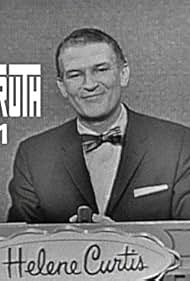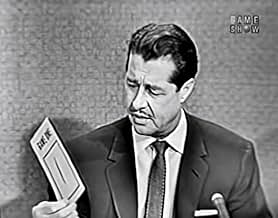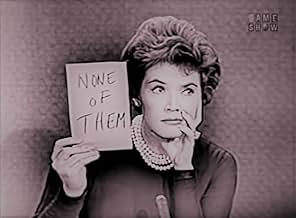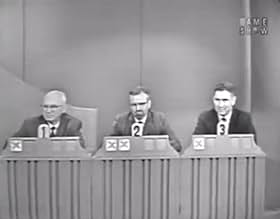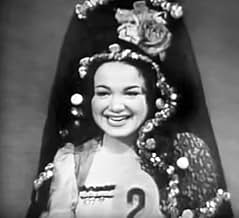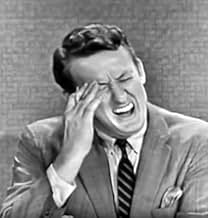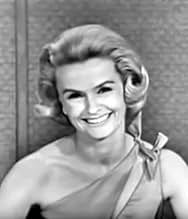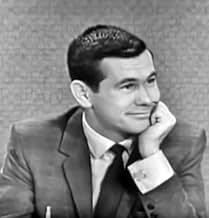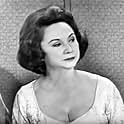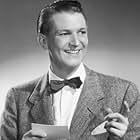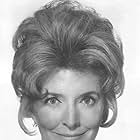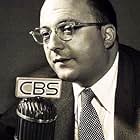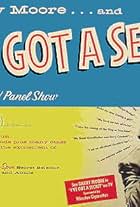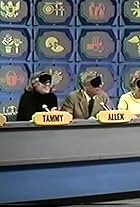Classic game show in which a person of some notoriety and two impostors try to match wits with a panel of four celebrities. The object of the game is to try to fool the celebrities into voti... Read allClassic game show in which a person of some notoriety and two impostors try to match wits with a panel of four celebrities. The object of the game is to try to fool the celebrities into voting for the two impostors.Classic game show in which a person of some notoriety and two impostors try to match wits with a panel of four celebrities. The object of the game is to try to fool the celebrities into voting for the two impostors.
- Nominated for 1 Primetime Emmy
- 1 nomination total
Storyline
Did you know
- TriviaDorothy Kilgallen and Arlene Francis appeared on the November 8, 1965, edition of the CBS daytime series pretending to be Joan Crawford. At the time this was a relatively new gimmick on the show involving a guest celebrity. The three women appeared wearing black veils over their faces, and their voices were distorted by technicians. The panel had to determine who was the real Joan Crawford. This broadcast was videotaped six days earlier, on November 2. Kilgallen was found dead at home several hours before it was scheduled for airing. CBS still showed it, but the network assigned newscaster Douglas Edwards to announce her death immediately after the closing credits rolled. A short time thereafter CBS officials wiped the videotape, which they did to all daytime telecasts in 1965. No recording of it is known to exist.
- Quotes
[last lines spoken each episode]
Host Bud Collyer: [says goodnight to the panel, then faces the camera] Bud Collyer saying goodnight from >>name of sponsor<< and
[points right index finger at camera]
Host Bud Collyer: reminding you to tell the truth.
[waves at camera]
Host Bud Collyer: Good night, everybody.
- Alternate versionsAlso available in a computer colorized version.
- ConnectionsFeatured in The Twilight Zone: Black Leather Jackets (1964)
- SoundtracksPeter Pan
(1956-1962)
(Theme 1)
Composed by Dolf van der Linden (ASCAP)
Original Publisher: W. Paxton & Co., Ltd. (ASCAP)
Current Publisher: Novello Special Account c/o G. Schirmer, Inc.
I watched the show back in the day and loved it. I really like the re-runs today of the old programs; they're irresistible in terms of audience participation. Collyer is one of the two or three greatest game show hosts ever IMO - good-natured, disciplined, absolutely real. I believe he was quite a spiritual man and wrote a book or two about his faith. The go-to panel for me was (from left) Tom Poston, Peggy Cass, Orson Bean (who veered in his lifetime from being a disciple of Wilhelm Reich to being a fundamentalist Christian), and Kitty Carlisle; this panel got locked into place at some point in about '65 after a fair amount of experimentation and quite a few not-so-good panelists. (Buzzr rarely plays a show from 1964-65-66 - is it because they have trouble getting clearances from companies who sponsored the show then but don't want their old-fashioned ads shown today?) Don Ameche was a frequent panelist circa 1962; he often became Mr. Inquisitor, with a harsh tone to his questioning - Don, baby, it's a game show! Polly Bergen made a bit too much of her ditziness (ironically, she later became a strong feminist). Johnny Carson was still mastering the art of being magnetic on camera; he literally never looks at the camera on TTTT and comes across as your basic leering smart-ass (which of course he was; he later learned to ameliorate the smart-ass thing with greater approachability). Tom Poston was superb much of the time but occasionally seemed Tommy Smothers-like in his inability to speak a coherent sentence; long, long seconds of air time would pass as Poston tried to think of something to say. The most drop-dead gorgeous panelist in the history of the show was Dina Merrill who virtually glowed. (And was fabulously rich.)
The quality of the guests - well, it varies, but I'd say seven out of ten are interesting. Lots of guests from the Kennedy Administration, like for example a kid who joined the Peace Corps - everyone on the show just has huge admiration for this guy and for the idea of the corps. This is fascinating, historically - hard to remember, now, just how treasured the Peace Corps concept was circa 1961-63. Ancel Keys made an appearance - in the early '60s he was a supremely confident (in fact arrogant) researcher on nutrition, a hugely influential guy, but his reputation has taken major hits since then around the topic of fat. Science marches on.
One thing I'm confused about is the truth-telling of guests. In very early shows, Bud tells us that only the real person needs to tell the truth. Later on, this caveat is dropped completely.
- henryonhillside
- Jun 13, 2016
- Permalink
- How many seasons does To Tell the Truth have?Powered by Alexa
Details
- Release date
- Country of origin
- Official site
- Language
- Filming locations
- Production companies
- See more company credits at IMDbPro
- Runtime30 minutes
- Sound mix
- Aspect ratio
- 1.33 : 1
Contribute to this page

